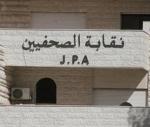You are here
A potential game changer
Mar 08,2023 - Last updated at Mar 08,2023
International Atomic Energy Agency (IAEA) chief Rafael Grossi's visit to Tehran could be a game changer. Instead of securing US and Iranian compliance with the 2015 Joint Comprehensive Plan of Action (JCPOA) limiting Iran's nuclear programme in exchange for lifting sanctions, Grossi and the Iranians have reverted to the 2016 safeguards agreement connected to the Non-Proliferation Treaty (NPT) which Iran signed in 1968 and ratified in 1970. While Iran has not signed or ratified the Additional Protocol to the NPT, Tehran has implemented its provisions by allowing the IAEA intrusive access to nuclear sites.
Grossi arrived in Tehran last Friday for a two-day visit to “relaunch the dialogue” on Iran’s nuclear work and to “reset the relationship at the highest level” by holding discussions with President Ebrahim Raisi. Iran sought to relaunch relations to avoid censure at this week's quarterly meeting of the agency's board of governors. Grossi was compelled to act when traces of uranium enriched to 83.7 per cent, approaching the 90 per cent level for making bombs, were found at Iran's underground Fordo facility, 100 kilometres south of Tehran.
The Iranians explained the presence of these particles by saying they were created in a spin-off of high-resolution centrifuges in the process of purifying to 60 per cent. The government said “unintended fluctuations... may have occurred” during the purification process. On this issue, Grossi stated, "There has not been production or accumulation," indicating that Tehran's explanation had satisfied him — for now. "This is important, so people are not misled." In other words, so the issue does not become a political football for propagandists.
Grossi said Iran would permit the IAEA to restore cameras removed last year in order to ensure the agency is continually informed of developments in Iran's programme. The IAEA will increase monitoring at Fordo and dispatch experts to catch up with monitoring in coming days.
At the end of Grossi's stay, head of Iran's Atomic Energy Organisation Mohammed Eslami said, “We came to an arrangement [with Grossi] to define our cooperation within the framework of the safeguards” on nuclear activities. He also expressed the hope that the three European and other nations which are a party to the JCPOA "are just focusing on Iran's JCPOA obligations. They, too, have obligations that they need to adhere to."
After a meeting with Grossi, Iran's Foreign Minister Hossein Amir-Abdollahian warned that the "window is still open for an agreement on negotiations to lift sanctions is still open, but this window will not be open forever”. Tis amounted to a challenge to the Biden administration which has not reentered the JCPOA since the Trump administration's 2018 abandonment if the deal. Presidential candidate Joe Biden pledged to rejoin the JCPOA and was expected to do this unconditionally when he entered office. However, he hedged US reentry with non-JCPOA conditions rejected by Iran, drawing out negotiations until a hard-line president was in power in Tehran.
Before Grossis' visit, US special envoy Rob Malley said, "Let’s see what the IAEA reports back and then it’ll be time enough for us to decide on appropriate next steps.” Malley has been sidelined by the Biden administration's focus on Ukraine. On this issue, Iran has angered the US by providing drones to Russia for use against Ukrainian forces.
Instead of pursuing the JCPOA, the administration has tightened sanctions at a time the Iranian economy is faltering and has castigated Tehran for cracking down on country-wide demonstrations led by women and girls protesting the death in custody of Mahsa Amini, an Iranian Kurdish woman detained for allegedly failing to wear her headscarf as dictated by the clerics. Since last September more than 500 Iranians have been killed, thousands wounded, 20,000 arrested while protesting and four executed for taking part in demonstrations.
Reverting to Non-Proliferation safeguards is a positive step but does not impose the limitations on Iran mandated by the JCPOA. Under this agreement, Iran agreed not to enrich uranium above 3.65 per cent, keep its stockpile at 300 kilogrammes, and use only an older generation of centrifuges for purification. A year after Donald Trump abandoned the JCPOA, Iran began to breach its commitments by enriching uranium to 20 and 60 per cent purity, amassing a large stockpile, and developing state-of-the-art centrifuges. Iran also turned off IAEA cameras and reduced its inspections.
The US strategy of containing Iran by imposing isolation and punitive sanctions has failed. Adopted in 1979 after the ouster of Washington's ally the shah by the clerical government, this strategy has forced Iran to develop a large degree of economic self-sufficiency, expand and improve its military capabilities, and forge relations with regional capitals as well as US-rivals China and Russia. Trump's abrogation of the JCPOA has prompted Iran to advance its nuclear programme to the point of escaping from the straight-jacket imposed by the deal and reaching the "break-out" point of nearing enrichment to 90 per cent weapons grade purity. While Tehran has rejected bomb-making, Israel has threatened to mount attacks on its nuclear facilities, thereby risking war.
Iran's strategy of breaching JCPOA limitations has also failed as the US has not reentered the JCPOA and looks unlikely to do so due to Israel's veto. Iran is now stuck with large stocks of uranium enriched to 3.65, 20, and 60 per cent as well as cascades of centrifuges which keep churching out more enriched uranium. While stocks purified to the lower levels can be used for reactors producing electricity and 20 per cent for research reactors, 60 per cent is simply a stepping-stone to 90 per cent weapons grade. Under the JCPOA excess stocks of the permitted 3.65 per cent were meant to be exported to Russia.
These failed strategies have exacerbated tensions between the US and Iran, have been exploited by Israel and its acolytes in the US and elsewhere and threaten this region with fresh conflict.












